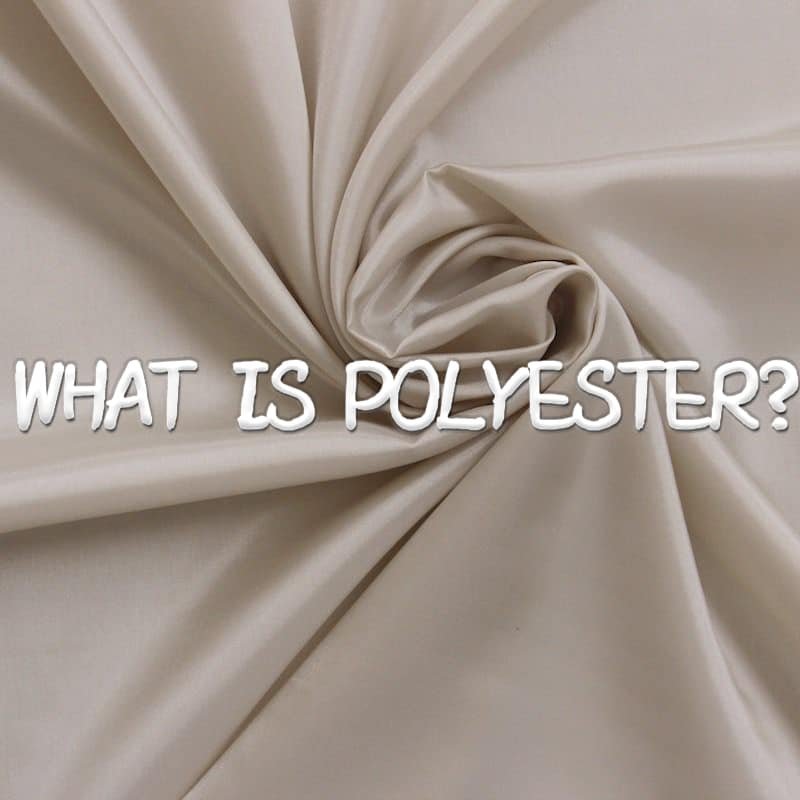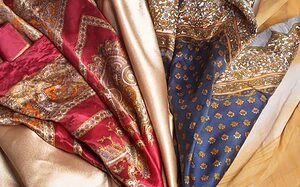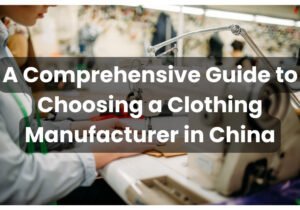
Polyester is a synthetic polymer material made from polyethylene terephthalate. It is a type of plastic that is commonly used in textiles, fibers, and film, due to its durability and resistance to wrinkles, shrinkage, and UV light. It is often used to make clothing, outdoor gear, furniture, and other items where its properties are valued.
How Is Polyester Made?
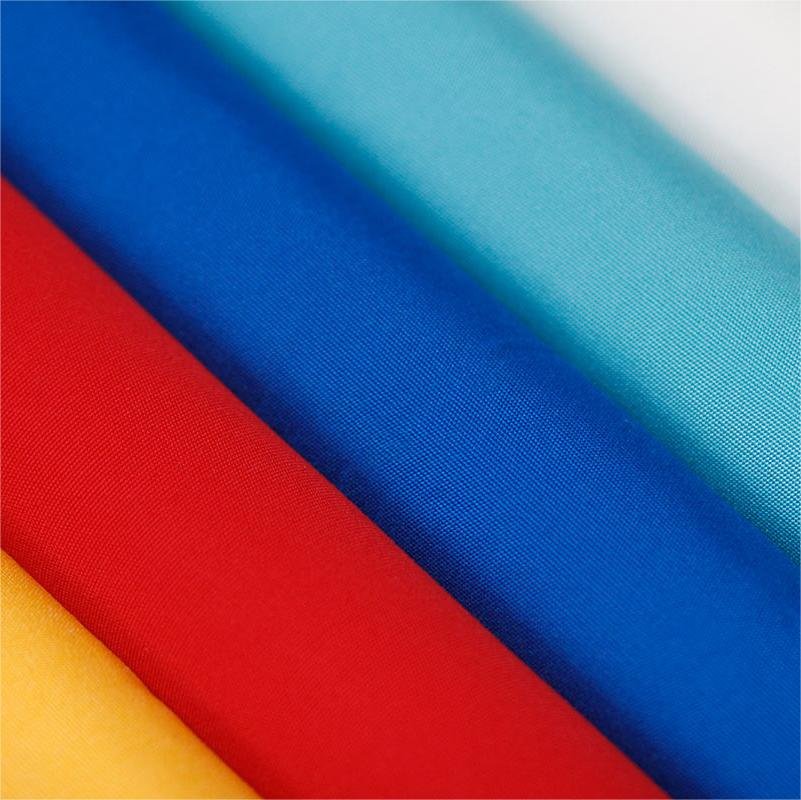
Polyester is a synthetic fiber that is made by polymerizing a specific chemical called polyethylene terephthalate (PET). The process involves heating the raw materials and then cooling them to form solid fibers. The fibers are then spun into yarns, which can be woven or knitted into various textiles, including clothing, upholstery, and carpets.
What Different Types Of Polyester Fabric Are There?
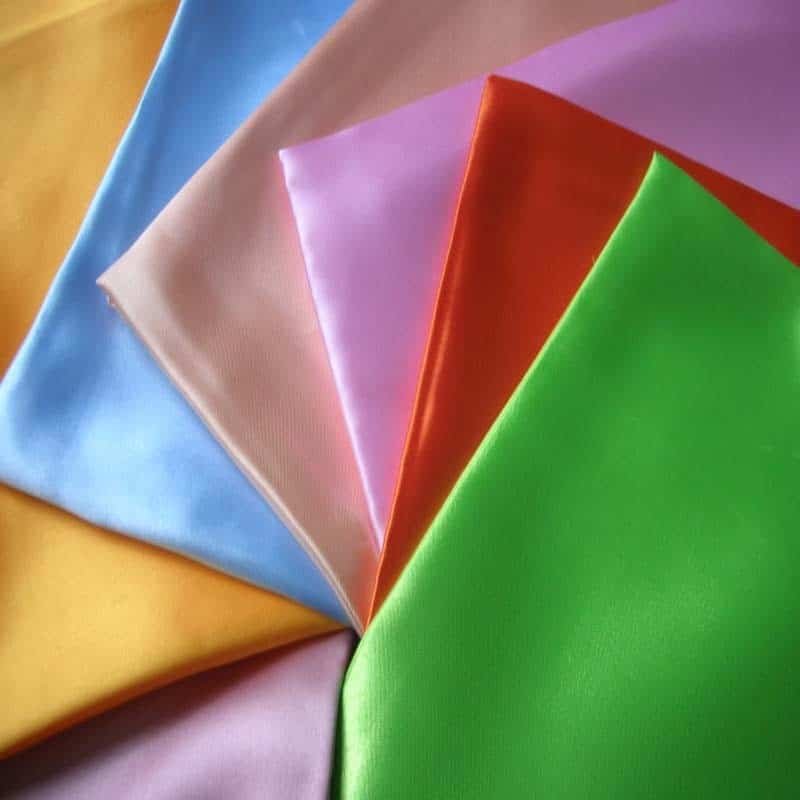
Polyester is a synthetic fiber that is widely used in the textile industry due to its various benefits, such as durability, strength, and resistance to shrinking, stretching, and wrinkles. There are several types of polyester fabrics that are used for various purposes, each with its own unique characteristics.
- Polyethylene Terephthalate (PET) or standard polyester: This is the most common form of polyester and is widely used for clothing, bedding, and upholstery. It is strong, lightweight, and easy to care for, making it a popular choice for everyday items.
- Textured Polyester: This type of polyester has a textured surface, which makes it an ideal material for soft furnishings and upholstery. It is known for its durability and resistance to wear and tear, which makes it a popular choice for furniture and upholstery in high-traffic areas.
- Microfiber Polyester: This is a fine and soft fiber that is often used in clothing, towels, and cleaning products. It is lightweight, absorbent, and fast-drying, making it ideal for sports and athletic wear, as well as cleaning products.
- Recycled Polyester: This type of polyester is made from recycled plastic bottles and other waste materials, making it an environmentally friendly option. It is used in clothing, accessories, and other products, and has the same properties as standard polyester, but with a lower environmental impact.
- Polyester Spandex or Lycra: This is a blend of polyester and spandex, which provides stretch and is often used in athletic wear and swimwear. It is known for its elasticity, which makes it ideal for clothing that needs to stretch and move with the body, such as leggings, yoga pants, and swimwear.
- Polyester Chiffon: This is a sheer and lightweight fabric that is often used in clothing, scarves, and decorations. It is soft and flowy, making it ideal for formal or delicate clothing items, such as prom dresses and evening gowns.
- Polyester Twill: This type of polyester has a woven texture that gives it a distinctive look and feel. It is often used for workwear, such as pants and shirts, due to its durability and resistance to wrinkling.
- Polyester Velvet: This type of polyester is soft, plush, and has a velvety surface. It is often used for upholstery, drapery, and clothing, as well as bedding and cushions.
- Polyester Organza: This is a sheer and delicate type of polyester that is often used for special occasion clothing, such as wedding dresses and bridesmaid dresses, as well as for decorations and accessories.
Each type of polyester fabric has its own specific properties and applications, but they are all strong, durable, and resistant to shrinking, stretching, and wrinkles. Whether you’re looking for a fabric that is easy to care for, environmentally friendly, or suitable for athletic wear, there is a type of polyester that will meet your needs.
What Are The Pros And Cons Of Polyester?
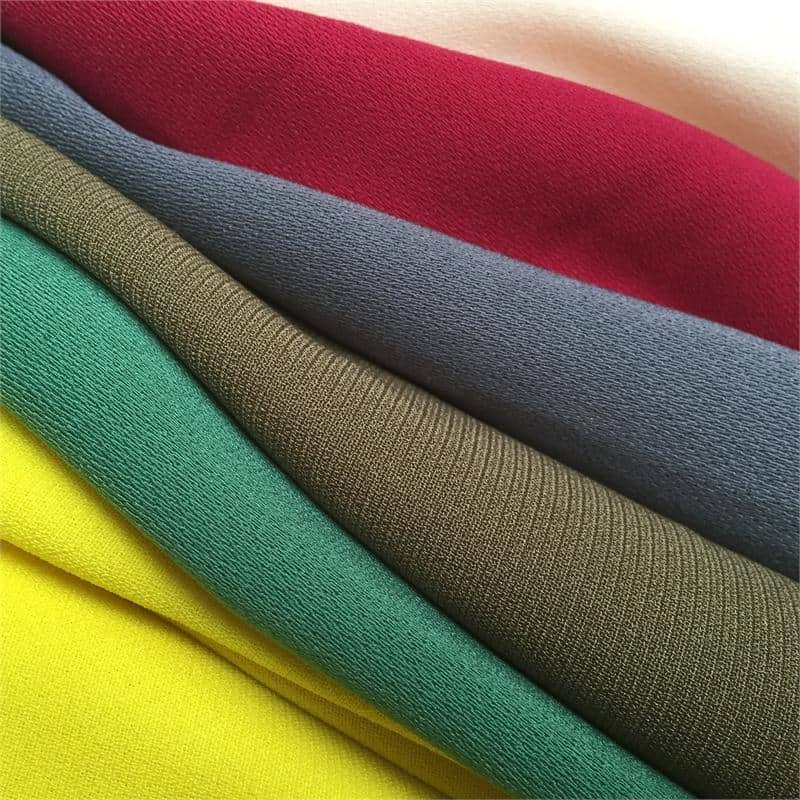
Polyester is a synthetic fiber commonly used in clothing, upholstery, and various other textiles.
Pros
- Durability: Polyester is known for its strength and resistance to tears, punctures, and other forms of wear and tear.
- Easy care: Polyester is often wrinkle and stain resistant, making it a low-maintenance choice for clothing and other textiles.
- Versatility: Polyester can be made in a variety of textures, weights, and finishes, making it suitable for a range of applications.
- Cost-effective: Compared to natural fibers like wool or silk, polyester is relatively inexpensive, making it an accessible option for many consumers.
Cons
- Environmental impact: Polyester is a petroleum-based product and its production can have a significant impact on the environment. The production process releases harmful chemicals into the air and water, and polyester products take a long time to break down in landfills.
- Non-breathable: Polyester is not breathable, meaning it doesn’t allow air to circulate around the skin. This can lead to discomfort and overheating, especially in hot weather.
- Not biodegradable: Unlike natural fibers like cotton or wool, polyester does not biodegrade, meaning it will persist in the environment for a long time after disposal.
- Abrasion: Polyester can abrase or pill, meaning it can become fuzzy or develop small balls of fibers on the surface, detracting from its appearance.
In conclusion, polyester has its advantages, such as durability, low maintenance, and cost-effectiveness, but it also has its disadvantages, such as its environmental impact, non-breathability, non-biodegradability, and abrasion. Whether or not polyester is the right choice for you depends on your specific needs and priorities.

